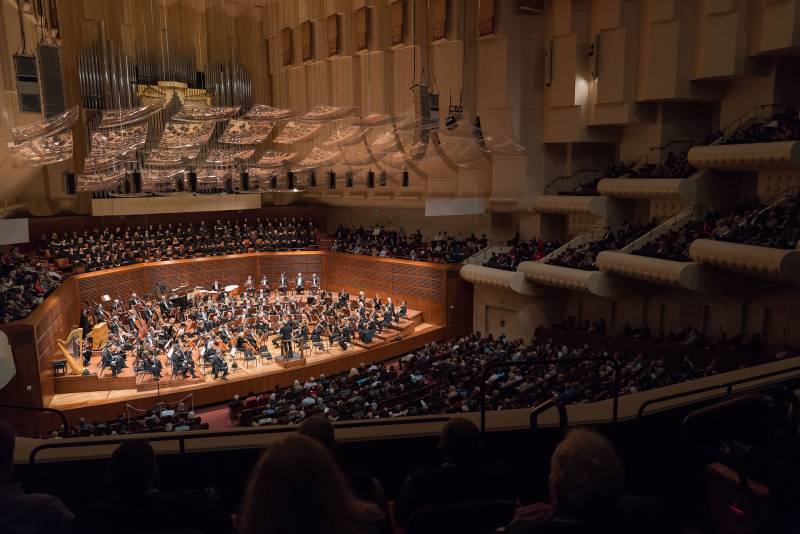The San Francisco Symphony Chorus has voted to authorize a strike amid contentious negotiations with San Francisco Symphony management, according to the American Guild of Musical Artists (AGMA), the union representing the choristers.
The announcement comes just days ahead of the 2024–25 season opener on Sept. 19, when outgoing Music Director Esa-Pekka Salonen is set to conduct the orchestra in a performance of Giuseppe Verdi’s Requiem, which prominently features the chorus.
Although a strike has not officially begun, the AGMA board of governors has granted Interim National Executive Director Allison Beck and the negotiation committee the authority to call a strike as a “last resort,” according to a union statement.
The chorus singers’ union contract expired on July 31. In negotiations, San Francisco Symphony management has proposed to cut their compensation by 65%, and to reduce choral programs by nearly half, from 8-11 per year to just five per year.


